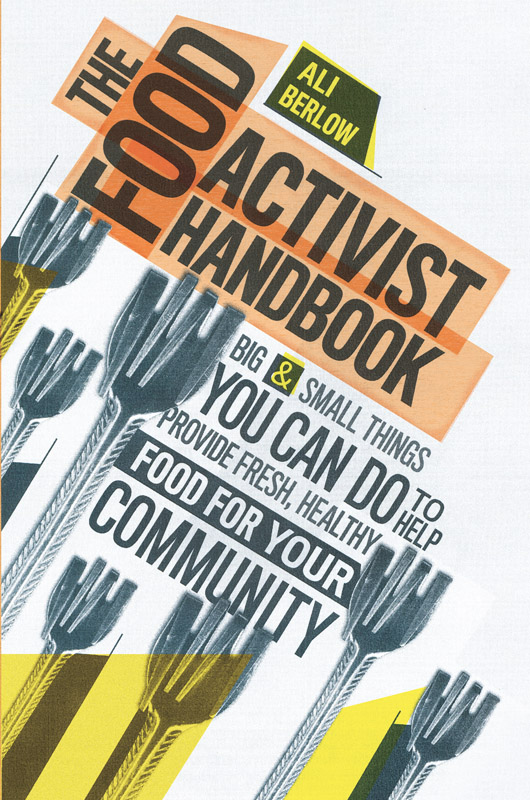“Eating is more intimate in a lot of ways than sex, and I promise it happens a lot more often, and regularly.”
Ali Berlow laughs as she says this. The woman who founded the Island Grown Initiative a decade ago, wrote The Mobile Poultry Slaughterhouse and was the founding editor and is still the co-publisher of Edible Vineyard knows what she’s talking about.
Her most recent book, The Food Activist’s Handbook: Big & Small Things You Can Do to Help Provide Fresh, Healthy Food for Your Community, was published earlier this month. The book is 320 pages designed to empower, instead of making people intimidated by the overwhelming state of food in America. It may well be viewed as the Our Bodies, Ourselves of healthy eating.
“It’s a nonconformist approach,” Mrs. Berlow says. “You don’t have to start on page 23 or go in order. Look at the table of contents and see where you should start, because I set it up so whatever you need, you can find big and small actions. It’s really a 360-degree view of food, broken into increments. Whether you’re a teenager, a teacher, a lawyer, an artist, whatever, in the culture of your specific community, there are actions to take, organizations that can help.”
The reality of today’s confusing world of GMOs, food labeling, powerlessness and wanting to do the right thing isn’t lost on Mrs. Berlow. She found the more she learned, the more she wanted to know.
“I didn’t grow up thinking I would create a humane chicken slaughter unit, but I would want animals to be treated humanely,” she says. “Reading books like The Omnivore’s Dilemma and watching documentaries like Food Inc., I left feeling almost defeated,” she confesses. “My colleague Noli Taylor [Island Grown Schools director] has a great perspective: ‘I can only change what I can see.’”
Getting started is everything. Mrs. Berlow, who has a degree in anthropology, recognizes the needs and obstacles in urban Detroit are very different from rural Kansas, yet the beginning is the same.
“The basic strategy that applies everywhere is simple. Look at my community, find the experts, glean information from them and figure out how to apply them.”
She doesn’t mean with a tractor or a hoe, either. Laughing again, she says, “People think I’m a farmer because I write about resilient sustainable food systems... and I’m never gonna be a farmer. I’m barely a gardener! But what can you do? That’s the trick. I can research. Google, compile, call, ask, keep searching. That’s how the mobile poultry slaughter unit came about . . . and my first book . . . and The Food Activist’s Handbook. Whatever your skills, you can find ways to make a difference.”
Sections devoted to Meatless Mondays, Potlucks with Purpose, Farmer Dinners, Start a Film Festival or Seed Library, Cook for Someone with Cancer, Hold a Poetry Workshop all aim to create a group of people around a common purpose.
“I had one Mom tell me this is perfect for her because she has no time and already feels overwhelmed. It’s in small bites she can take in, but also apply it, which is what she really wants. And that’s why I didn’t write it as a long form, because a lot of the actions are small. But that makes them do-able. My husband was teasing me, ‘It’s like the manual of a car.’ At first I didn’t like it, but then he explained, ‘This is helpful. ‘What’s broken?’ ‘How do I fix this?’ ‘What does this mean?’”
Always more to learn, to do, to seek, Ali Berlow loves the challenge. But even more, she loves the idea of passing it on. On May 6, she accompanied Mrs. Taylor and some Vineyard high school seniors to the State House in Boston to watch them present to the assembled legislators about the impact of the Vineyard’s Farm to School programs.
“I was standing in a packed room, watching my work in action,” she remembers. “To see the next generation taking the work and the message and moving it forward, that’s what this book is supposed to do, I hope. The day after publication, I couldn’t think of anything better or anywhere I’d rather be than with Noli, who helped us start Island Grown Schools. Just standing there, taking it in.”







Comments (1)
Comments
Comment policy »